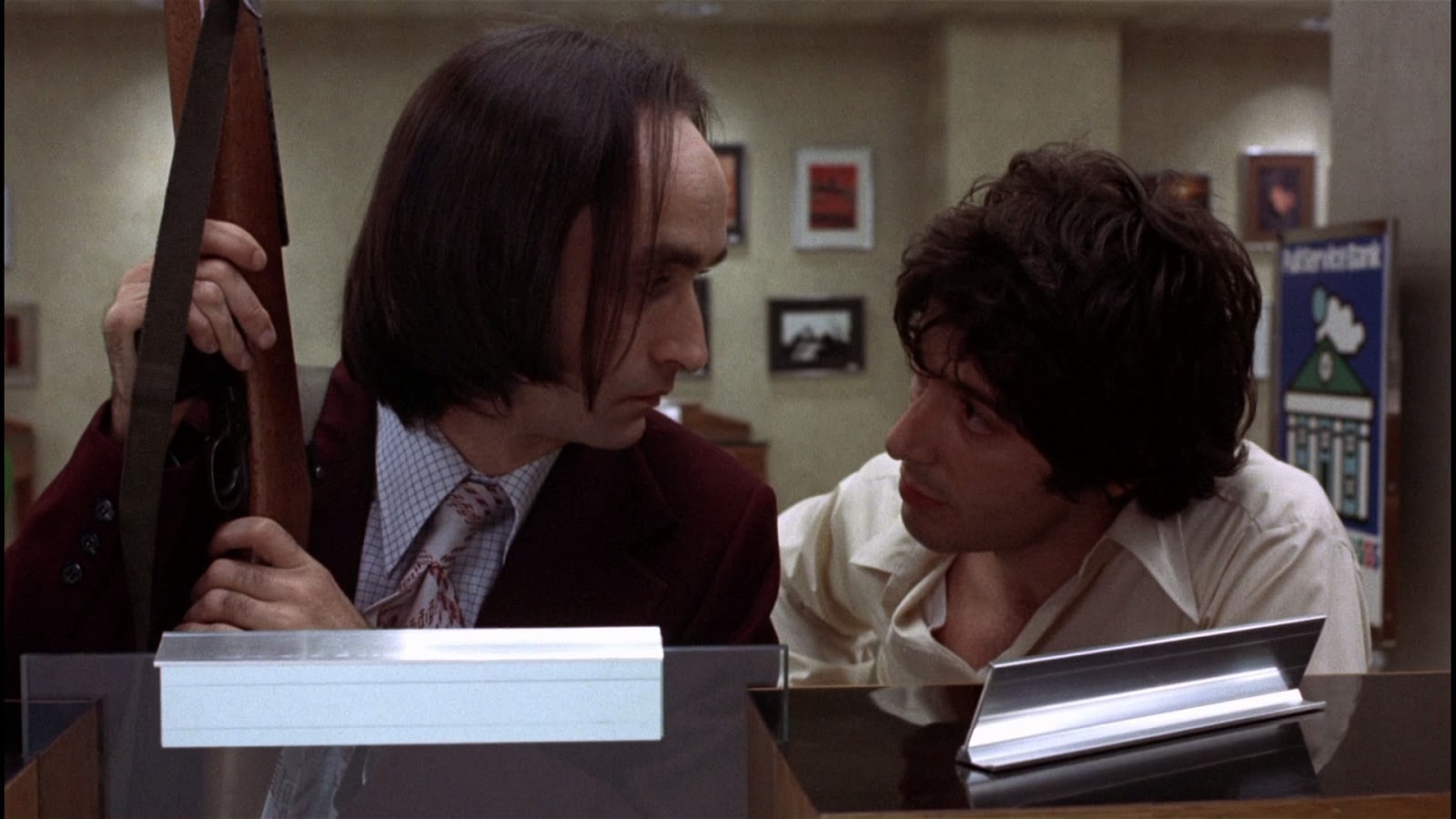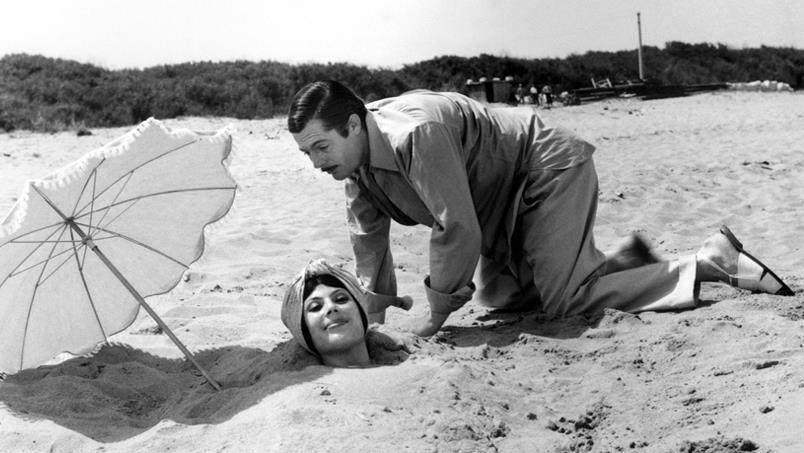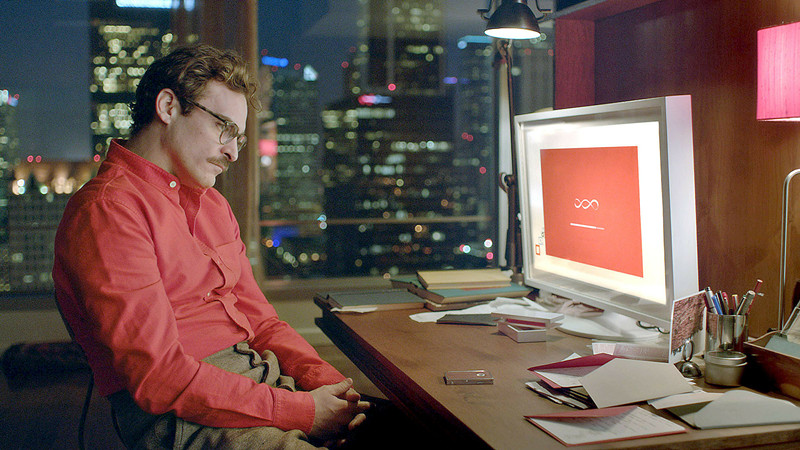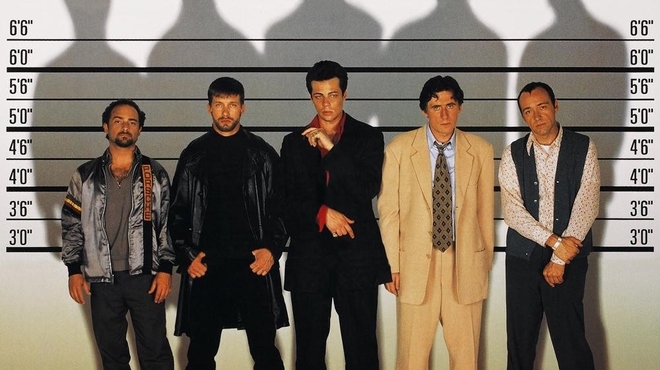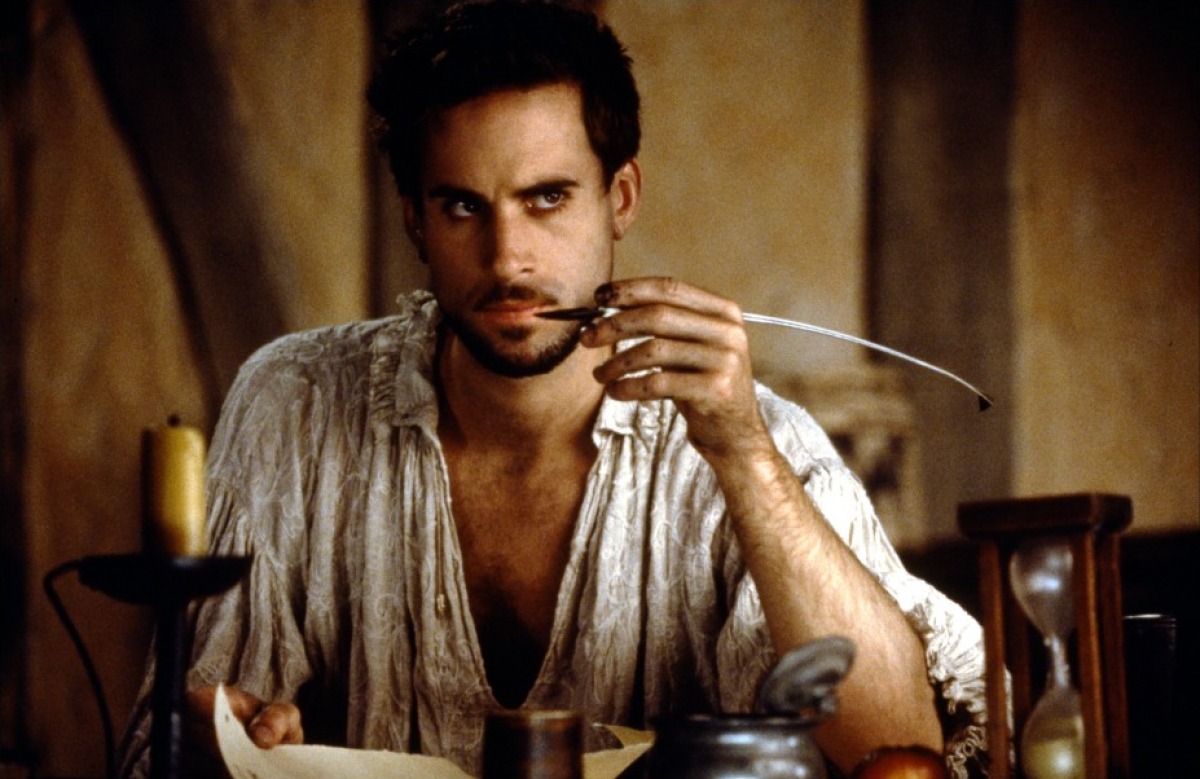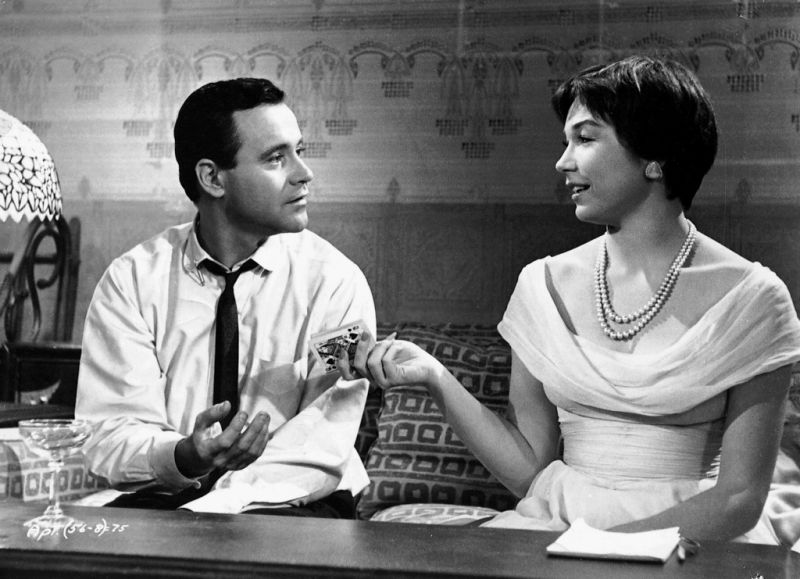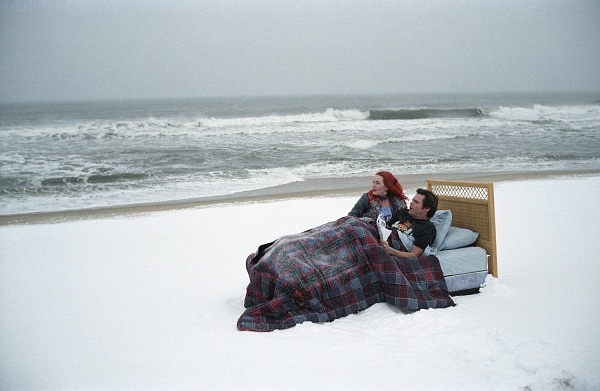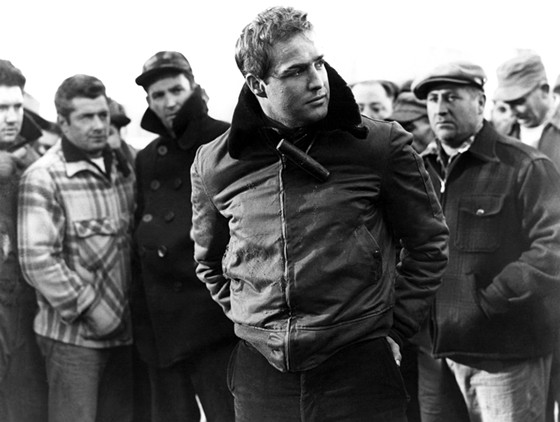17. Dog Day Afternoon
The ultimate bank-heist-gone-wrong movie, “Dog Day Afternoon” is as intense a story as the title may suggest. Taking place over the course of one day, Frank Pierson’s script about a man trying to rob a bank to pay for his lover’s sex change operation is a uniquely character-driven masterpiece that renders it one of the best of its genre.
The film takes place primarily at the bank that protagonist Sonny tries to rob, and like all bank heist movies, things don’t go as planned, but the element that sucks the viewer into the story is how Sonny keeps the heist going despite the fact that the whole thing seems like a bust right from the beginning. His motivations are clear, and his determination is evident, as he works his way through one obstacle to the next and keeps this seemingly ill-fated plan on a thrilling course which leaves the audience wondering if he’ll actually get away with it.
16. Divorce Italian Style
Foreign films seldom win the major awards, but that didn’t stop “Divorce Italian Style” from snagging a well-deserved award for its script about a man who plots to murder his wife as a means of marrying his cousin. It may sound like an offbeat plot, but the fact that’s it’s based around actual laws and customs of 1960s Italian culture turns this absurdist comedy into satirical gold.
The script is funny to say the least, but the main power of this foreign film is its ability to transcend language and culture. Murdering one’s spouse may not be something to which everyone can relate, but the sheer desire and desperation to leave one’s troubled marriage and start anew certainly is. With that, this otherwise culture-centric tale of honor and tradition becomes all the more engaging for the audience throughout the film, with the “cultural outsider” perspective becoming less and less of a factor as the story progresses.
15. Her
The twenty-first century is somewhat riddled with movies about technology’s impact on society. It isn’t a particularly innovative idea at this point, but Spike Jonze’s approach to it in “Her” thankfully is. The story follows the dreary life of Theodore, a writer who begins a complicated relationship with an operating system named Samantha in the not-so-distant future.
With this film, Jonze has achieved what so few other tech-centric movies have before. He’s created a story in which he forgoes the clichéd notion that all technology is bad. Samantha isn’t an evil robot trying to destroy Theodore. She is virtually human, and her relationship with Theodore is one in which each of them has thoughts, feelings, desires, and needs that may not necessarily fall in line with their counterparts. It’s a refreshingly subtle and endlessly thought-provoking examination of human connection and what exactly love means in the digital age.
14. American Beauty
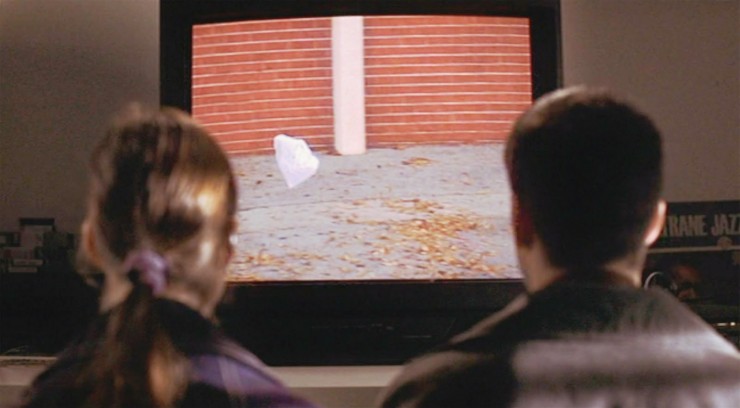
Alan Ball’s script for “American Beauty,” about a middle-aged husband and father struggling with a mid-life crisis, worked incredibly well for a number of reasons. The main one, perhaps, is the fact that this tale of an ordinary suburban family and their struggles with ordinary everyday problems held up the perfect mirror to its audience.
The American dream has been depicted in many films, but few have so boldly tackled the very concept of the American dream and what exactly it means to achieve it. The success in Ball’s writing comes from his ability to take a very mundane theme and weave it into a totally irreverent, darkly comic story. Each element of his characters’ seemingly perfect lives slowly falls apart, and what the audience is left with is a frighteningly real portrayal of all the desires and fears that make up their daily lives and the very world in which they live. Suburbia may not be the most exciting world, but “American Beauty” certainly highlights the hidden bits that are.
13. The Usual Suspects
Christopher McQuarrie’s script for “The Usual Suspects” is a large part of what enabled the film to practically reinvigorate the noir genre. When five guys (deemed “the usual suspects” thanks to “Casablanca”) are brought together for a police line-up, each of them suddenly finds himself becoming a piece in a dangerous puzzle involving the notoriously deadly Keyser Soze.
The heart of the story is in fact the mysterious Mr. Soze, whose status as a mythical figure propels the story in a direction where Soze isn’t looking for the MacGuffin – Soze is the MacGuffin. It’s a brilliant angle that forgoes the typical objective seen in most noir films where characters simply try to procure money or drugs, but what’s even more effective about the concept is the way in which McQuarrie very carefully lays out the pieces of Soze’s identity, building up to a nail-biting climax where he may very well turn out to be the devil himself.
12. Shakespeare in Love
Forever known as the film that robbed “Saving Private Ryan” of the Best Picture Oscar, this romantic comedy set in the sixteenth century may never live down that reputation. However, there are few who can deny it its rightful title as the Best Original Screenplay of that year. Chronicling the life of William Shakespeare as a beautiful muse inspires him to write “Romeo and Juliet,” “Shakespeare in Love” is a love story worthy of any century.
In their winning script, Tom Stoppard and Marc Norman expertly capture the very spirit of Shakespeare’s writing. Mastering the language of the unmistakable era, the dialogue becomes as poetic as only the Bard himself could have written. While the words are something out of a Shakespeare play, the plot combines the romance, comedy, and tragedy that the Bard infused into so many of his best works, and yet, in their attempt to pay tribute to Shakespeare, Stoppard and Norman have simultaneously created something entirely of their own.
11. The Apartment
Arguably the greatest screenwriter to ever grace Hollywood, Billy Wilder has a very distinct storytelling style that is evident in all his scripts. One of the greatest examples of his talent is this endlessly charming romantic comedy about a lovesick accountant who lends his apartment to his bosses for extramarital affairs in exchange for a promotion, only to discover that one of their mistresses is the girl for whom he’s head over heels.
What is already a very inventive plot is elevated by the sheer cleverness for which Wilder has become known. Not only is the dialogue delightfully witty, but Wilder’s take on the American workplace is undeniably perceptive, pinpointing the countless flaws that suck the film’s protagonist into a melancholy love story. However, the cynicism evoked in the film never feels trite or melodramatic, as each bitter moment is immediately met with one that is romantic and sweet, thus providing this poignant tale of exploitation with upbeat moments and hilarious quips that render “The Apartment” a love story for all times.
10. Eternal Sunshine of the Spotless Mind
It’s safe to say that nobody but Charlie Kaufman could have concocted a concept as wonderfully bizarre as “Eternal Sunshine of the Spotless Mind,” but to deem this story of a man trying to erase his own memory in order to get over a painful breakup as merely bizarre would be a great disservice to Kaufman’s work.
The title (taken from a verse in an Alexander Pope poem) sums up the very essence of the film and the beautifully poetic nature of its lead characters Joel and Clementine. Despite his incorporating elements of the fantastic and the surreal, Kaufman is nevertheless able to capture the ups and downs of a relationship, chronicling the almost insane journey through which love takes those inflicted by it and the nonsensical spirit of one’s own actions in dealing with its untimely end. The true genius in “Eternal Sunshine of the Spotless Mind” therefore becomes how effectively Kaufman makes such a far-out, far-fetched idea so astonishingly relatable.
9. On the Waterfront
With one of the greatest film monologues of all time, “On the Waterfront” could have ranked on this list merely for Marlon Brando’s wrenching line, “I could’ve been a contender.” As it goes, however, the script’s power delves much deeper than a single scene, as the story of a dockworker single-handedly trying to take down corrupt union bosses is an example of the hero’s journey at its finest.
In “On the Waterfront,” the issue of morality is never expressed in a way that beats its audience over the head with a preachy message. Budd Schulberg instead uses Terry, one of the most subtly developed heroes of cinema, to communicate this issue through the heartbreaking effect it has on his own soul and psyche.
The film then turns into something far greater than a simple story of right or wrong; it becomes a character study that forces the audience to put itself in Terry’s shoes. There’s definitely a lesson to be learned in the film, but the wonder of it lies in the script’s ability to take the viewer to it step-by-step right alongside its sympathetic protagonist for a climax that is undoubtedly worth all the pain and anguish.
